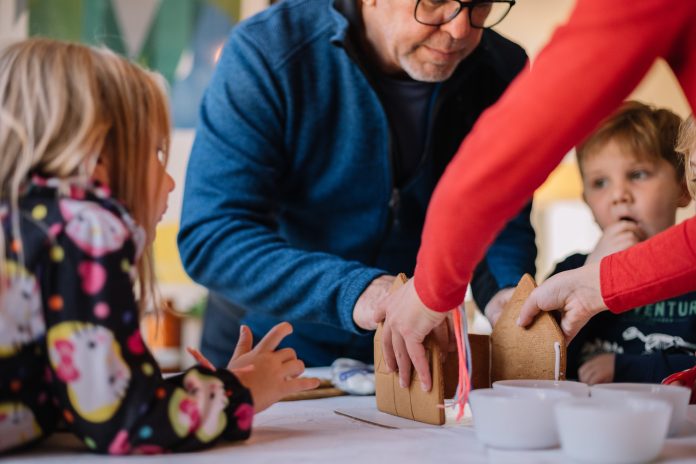Most grandchildren come into our families the old-fashioned way—they are born into our families. But what if a grandchild has entered the family circle through a different door? Maybe you have remarried after a divorce or after the death of a spouse, and your new spouse already had grandchildren. Or maybe your child has married someone who already had children. What should your relationship be with these “inherited” grandchildren?
It’s quite likely that you have not had the privilege of building a relationship with these grandchildren before the new marriage. How do you build a relationship with someone who wasn’t born as your grandchild, especially a new grandchild who may be a bit older? And what should your role be in light of the fact these grandchildren may already have established relationships with their natural grandparents?
What are some gospel truths that might enrich our relationships with special grandchildren? Well, for a start, let’s recall the truth that we were adopted by our heavenly Father. He chose us to be part of his family. Ephesians 1:4-5 reminds us, “[H]e chose us in him before the foundation of the world, that we should be holy and blameless before him. In love he predestined us for adoption as sons through Jesus Christ.” God welcomed us into his family because of what Jesus did on our behalf. In light of God’s welcome, surely we ought to be similarly disposed to those who might enter into our families through unforeseen avenues. Romans 15:7 says, “[W]elcome one another as Christ has welcomed you, for the glory of God.” There is no reason for us to assume a standoffish posture toward newly gained grandchildren. God has not been standoffish with us, has he? He chose to move toward us, even when we were not moving toward him.
By God’s grace, we can reflect him as we choose to move toward these new grandchildren. We can say “welcome to the family” with Christ-reflecting love and joy. We can do so face-to-face or in a letter or special card. Why not mark your calendar with special dates such as birthdays and special events for that new grandchild, so that you can surprise her with timely expressions of thoughtful love? And don’t forget to include your new grandchildren in your regular prayers for your family.
You may need to demonstrate special patience with an inherited grandchild who is warming up to you slowly or even deliberately keeping their distance. Be neither forceful, nor passive. Gently demonstrate love and acceptance through words and intentional acts of kindness. Let the child determine the pace of growth in your relationship. Don’t be offended if a new grandchild doesn’t immediately accept your love. Blending a family takes time—lots of time. Take the high road. After all, you are the older one involved in this relationship.
Beware of the pain that can be caused by showing favoritism to “natural” grandchildren while treating “inherited” grandchildren as second class. To be candid, the way these children came into your family may be less than ideal. Your adult child may have made poor decisions when ending a previous marriage or when marrying his or her spouse. Whatever the situation, it is not the children’s fault. Our calling in this situation is, like God, to stretch a wing of protection over these children, offering them as much loving support as they are willing to receive (Psalm 57:1; Ruth 2:12).
Gladly celebrate the new grandchild’s relationship with his or her other sets of grandparents. Love knows no competition. Speak well of the other adults in the family, including the other grandparents and any ex-daughter-in-law or son-in-law. Empowered by God’s grace, seek to live out the directive of Colossians 4:6, “Let your speech always be gracious.” Struggling with living out that command? Maybe it’s time to pray that ancient prayer of Psalm 141:3, “Set a guard, O Lord, over my mouth; keep watch over the door of my lips!”He will help you. And show Christlike patience in sharing time with the other sets of grandparents. It’s quite likely that the birth grandparents have established traditions of when their extended family gathers for holidays and vacations. In those situations, don’t start a tug-of-war with the other grandparents, but look for ways to begin your own traditions with your new grandchildren, deferring to one another in reverence of Christ (Ephesians 5:21).
“We love [our inherited grandchildren] because Christ loved us” (1 John 4:19, paraphrased).







